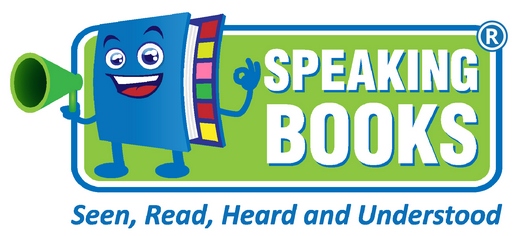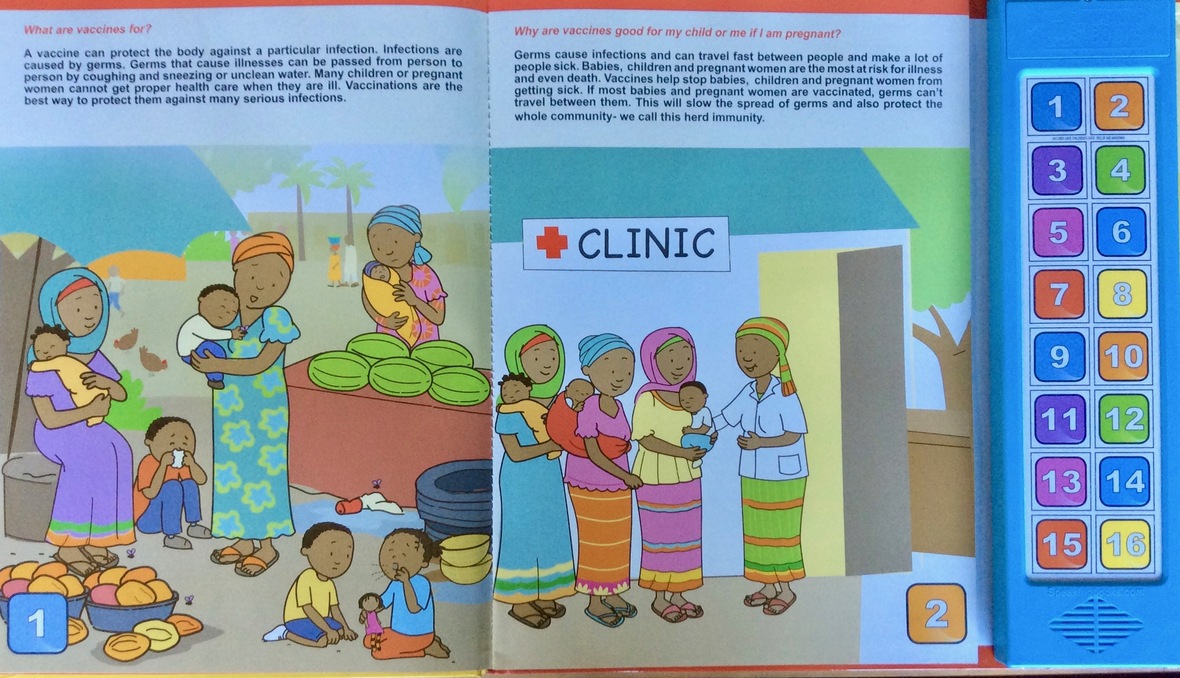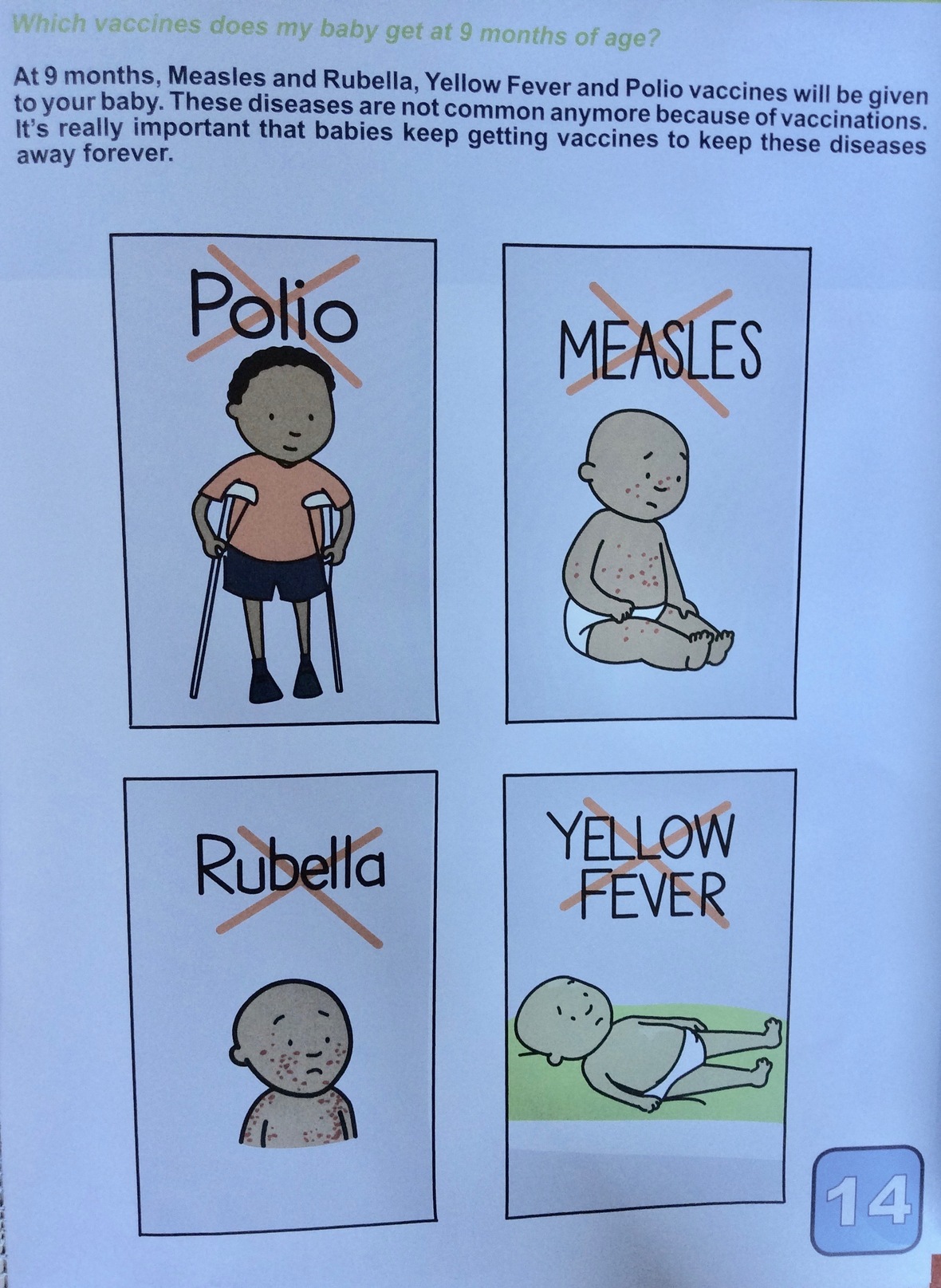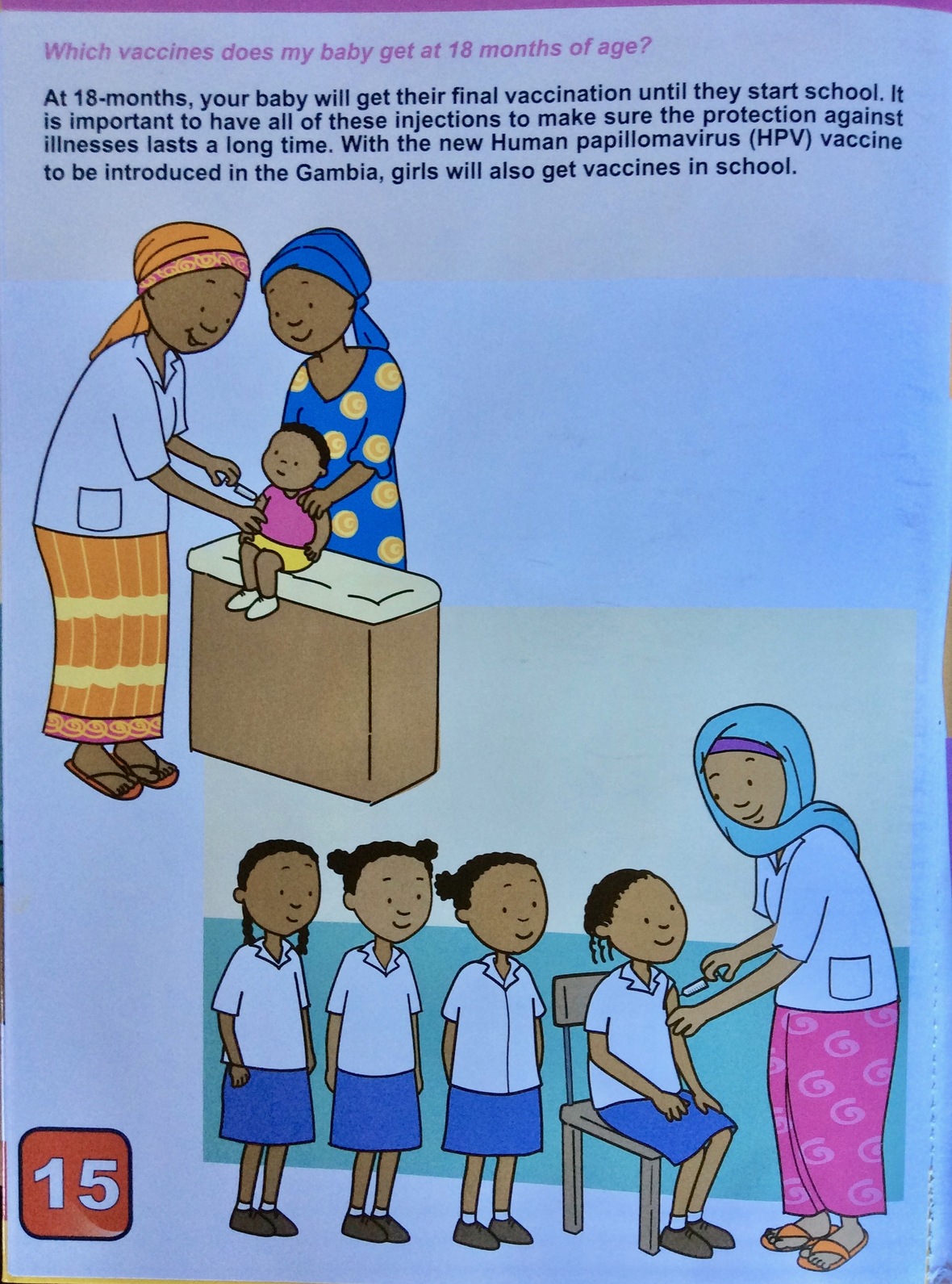Research into the Impact of Speaking Books® on Immunization October 2019
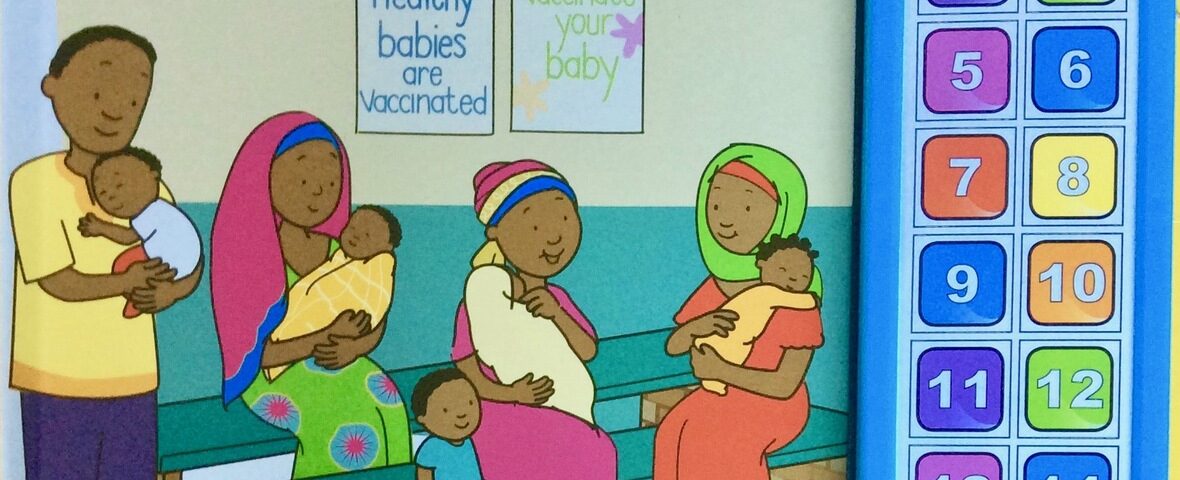
A Speaking Book® “Vaccines Save Children’s Lives (How Vaccines Protect Your Baby)” was developed for the Gambia by the MRC Unit The Gambia at the London School of Hygiene and Tropical Medicine (LSHTM), an organization renowned for their research, postgraduate studies and continuing education in public and global health.
The evaluation of the use of this version of the Speaking Book® in a set of communities not previously involved in vaccine studies has shown that the Speaking Book® had a positive impact on understanding of EPI vaccines. The format and content were well received by both health care workers and patients and facilitated communication about vaccination.
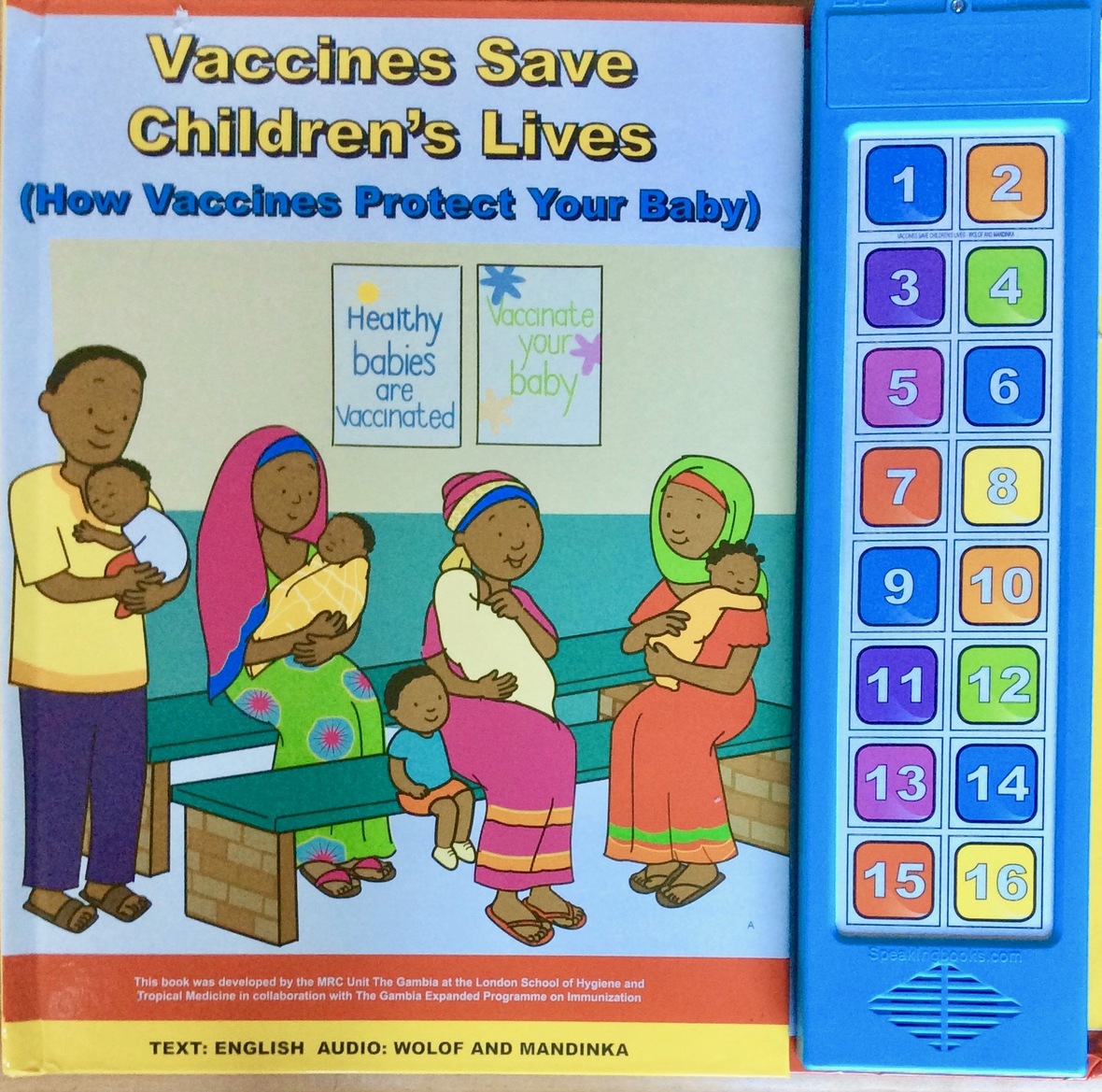
The Speaking Book® Breaks Barriers to Healthcare
Education undoubtedly plays a critical role in shaping attitudes toward vaccines with the majority of respondents stating that their major source of information on immunization were the Health Care Workers (HCW) at the immunization clinic. This emphasizes the importance of an educational tool such as the Speaking Book® which can be useful to both HCWs and Primary Care-Givers (PCGs), alike.
Impact of the Speaking Book® on Vaccine Knowledge
The evaluation of primary care giver (PCG) knowledge pre and post introduction of the book revealed significantly increased knowledge.
The content of the Speaking Book® was able to address most of the questions of PCGs. All HCWs interviewed also reported that the Speaking Book® helped them to answer questions and concerns from parents. They said the Speaking Book® presents vaccine information in a simple way that can be easily understood.
Speaking Books® Improve Efficiency
HCWs expressed ways in which the Speaking Book® has increased their productivity, for example, the Speaking Book® is a self-explanatory tool and most of the PCGs can make use of it with little or no assistance. Almost all of the HCWs interviewed reported that the Speaking Book® made more efficient use of their time and energy.
Speaking Books® Improve Clinic Attendance
HCWs repeatedly highlighted enhanced clinic attendance by PCGs since the introduction of the Speaking Book®. Some described PCGs as been more motivated and dedicated to the immunization schedule.
Speaking Books® Enhance Communication
The two local languages, Wolof and Mandinka which were used for the recordings in the Speaking Book® greatly aided the sharing of information in an understandable way. They said that the mothers were able to discuss vaccines with them with more confidence and the Speaking Book® had made it easier for health care workers to explain information relating to the vaccines.
Speaking Books® Encourage Shared Responsibility and Encourage Community Ownership
Some of the women shared information from the Speaking Book® in the community and some of the women were eager to take the responsibility of health talks during immunization clinics with their peers. HCWs consider this as a way of spreading vaccine related information and making work easier for them. In the communities, mothers and caregivers who benefited from the Speaking Book® and shared the information more widely in their communities were seen as mentors to other mothers and caregivers.
Conclusion
No child should die from a preventable infection. The Speaking Book® has already achieved world-wide recognition as a valuable tool for immunization. Numerous Speaking Books® have been distributed in a number of countries – like the End Polio Now series created for UNICEF and Rotary International for Nigeria, Pakistan and Afghanistan, the Merck series on Rotavirus, Understanding Vaccine Clinical Trials for GSK and Pfizer, Pneumococcal Disease Immunization for Kenya and the DRC, as well as a great number of Immunization education Speaking Books® created for UNICEF for mass distribution in Nigeria and Ethiopia.
In the Gambia project, all the HCWs considered the Speaking Book® an important tool. They discussed the importance of sharing the information in the Speaking Book® with HCWs in other facilities. Immunization is life-saving. The Speaking Book® clearly expresses this and breaks down barriers to enable acceptance. Through the Speaking Book®, communities and health care workers can meaningfully engage, and other stakeholders are mentored and educated. This will have a significant impact on health.
The cost of a vaccine is far lower than the cost of treating a sick child or fighting a disease outbreak. In low-income regions, that are understaffed and under-resourced, the Speaking Book® is a durable and reliable way to promote easy-to-understand healthcare messaging regardless of literacy levels.
The Speaking Book® provides a high return-on-investment and should be part of all patient education programs.
*This book was developed by the MRC Unit The Gambia at the London School of Hygiene and Tropical Medicine in collaboration with The Gambia Expanded Program on Immunization.
For Further Information:
PI of the Speaking Book® project in the Gambia
Beate Kampmann MD PhD DTM&H FRCPCH
Professor of Paediatric Infection & Immunity
Director, The Vaccine Centre
London School of Hygiene and Tropical Medicine
beate.kampmann@lshtm.ac.uk
Brian Julius,
Founder, Speaking Books®
bj@speakingbooks.com
www.speakingbooks.com
